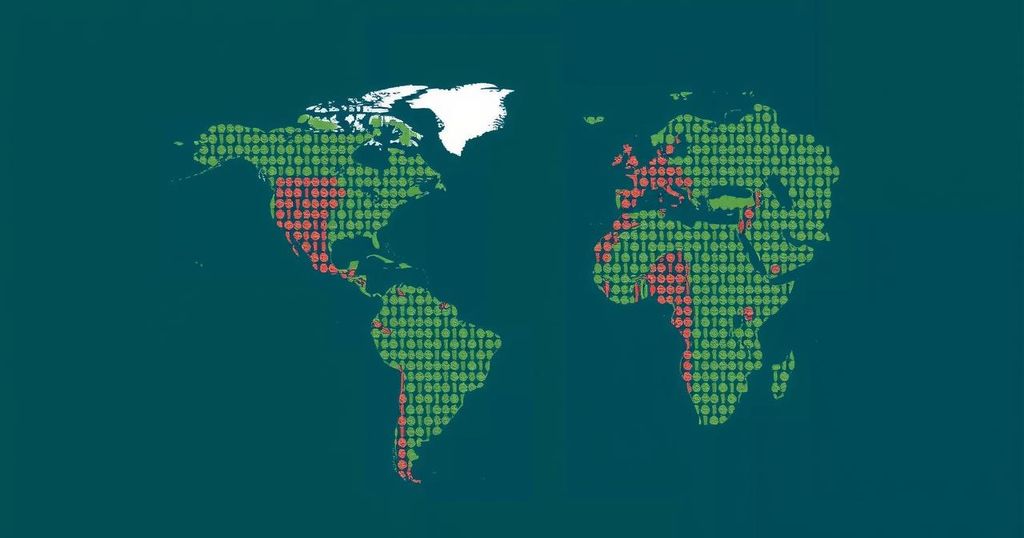At COP29, nations are urged to raise $1 trillion annually for vulnerable countries impacted by climate change. Political tensions, notably Argentina’s withdrawal, threaten progress as discussions on climate financing continue amidst a backdrop of uncertainty regarding developed nations’ commitments. The need for a substantial increase to $1.3 trillion annually by 2035 highlights the urgency of effective climate finance initiatives.
During the COP29 summit, nations grappled with the challenge of securing $1 trillion annually to support vulnerable countries in tackling climate change. The urgency intensified as many developing nations highlighted the necessity of this funding to set ambitious climate goals ahead of the upcoming COP30 in Brazil. However, the discussions faced significant political tension, particularly following Argentina’s abrupt withdrawal from the conference, which raised concerns about the overall commitment to climate finance amidst shifting global dynamics. As negotiators continue to work on draft commitments, the ongoing divide between developed and developing nations complicates efforts to identify feasible solutions for funding. The previous climate finance target of $100 billion has faced scrutiny after being fully met only starting in 2022. A recent report suggests that the target should increase to $1.3 trillion by 2035, underscoring the critical need for urgent action to address escalating climate challenges. Within this context, multilateral development banks, including the World Bank, have pledged to amplify climate finance, though the uncertainty surrounding U.S. involvement looms large. The conference illustrated the fragmentary nature of international climate negotiations, further exacerbated by Argentina’s decision to withdraw its delegation for internal reassessments and the tensions between Azerbaijan and France over unrelated geopolitical issues. As the stakes for climate action grow, the necessity for a unified approach and financial commitments become more urgent, amidst ongoing public protests calling for accountability from developed nations. As discussions advance, the possibility of collaboration remains, but the overarching questions regarding monetary support for climate initiatives endure, marking COP29 as a crucial moment in the global climate dialogue.
The COP29 climate conference is set against a backdrop of pressing global climate challenges, as developing countries contend with the need for substantial funding to implement climate mitigation and adaptation strategies. The collective findings from economists indicate that developing nations require a minimum of $1 trillion annually to effectively address the repercussions of climate change by the decade’s end. The negotiations at COP29 serve as a continuation of earlier climate summits where agreements around financial pledges have been met with varying degrees of success, often hindered by political disagreements between affluent and underdeveloped regions. Recent geopolitical shifts, notably in the U.S. following Donald Trump’s election, exacerbate concerns surrounding funding commitments, with many nations uncertain about future financial engagements. The urgency for reliable climate finance has never been more pronounced, as highlighted by reports advocating for increased annual targets to combat climate challenges effectively.
In conclusion, the COP29 climate talks underscore the critical necessity for raising $1 trillion annually to assist vulnerable nations in confronting climate change. Political tensions, exemplified by Argentina’s withdrawal from the talks and complex relations between various countries, complicate efforts to reach meaningful agreements. As the global community looks ahead to COP30, the stability and effectiveness of climate financing remain pivotal to achieving ambitious climate goals and addressing the growing climate crisis. Stakeholder engagement and significant commitments from both developed and developing nations are essential to forge a path toward sustainable climate action.
Original Source: tuoitrenews.vn






